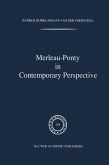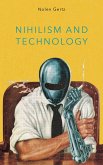Paul Ricoeur has been one of the most influential and intellectually challenging philosophers of the last century, and his work has contributed to a vast array of fields: studies of language, of history, of ethics and politics. However, he has up until recently only had a minor impact on the philosophy of technology. Interpreting Technology aims to put Ricoeur's work at the centre of contemporary philosophical thinking concerning technology. It investigates his project of critical hermeneutics for rethinking established theories of technology, the growing ethical and political impacts of technologies on the modern lifeworld, and ways of analysing global sociotechnical systems such as the Internet. Ricoeur's philosophy allows us to approach questions such as: how could narrative theory enhance our understanding of technological mediation? How can our technical practices be informed by the ethical aim of living the good life, with and for others, in just institutions? And how does the emerging global media landscape shape our sense of self, and our understanding of history? These questions are more timely than ever, considering the enormous impact technologies have on daily life in the 21st century: on how we shape ourselves with health apps, how we engage with one-another through social media, and how we act politically through digital platforms.
Bitte wählen Sie Ihr Anliegen aus.
Rechnungen
Retourenschein anfordern
Bestellstatus
Storno









